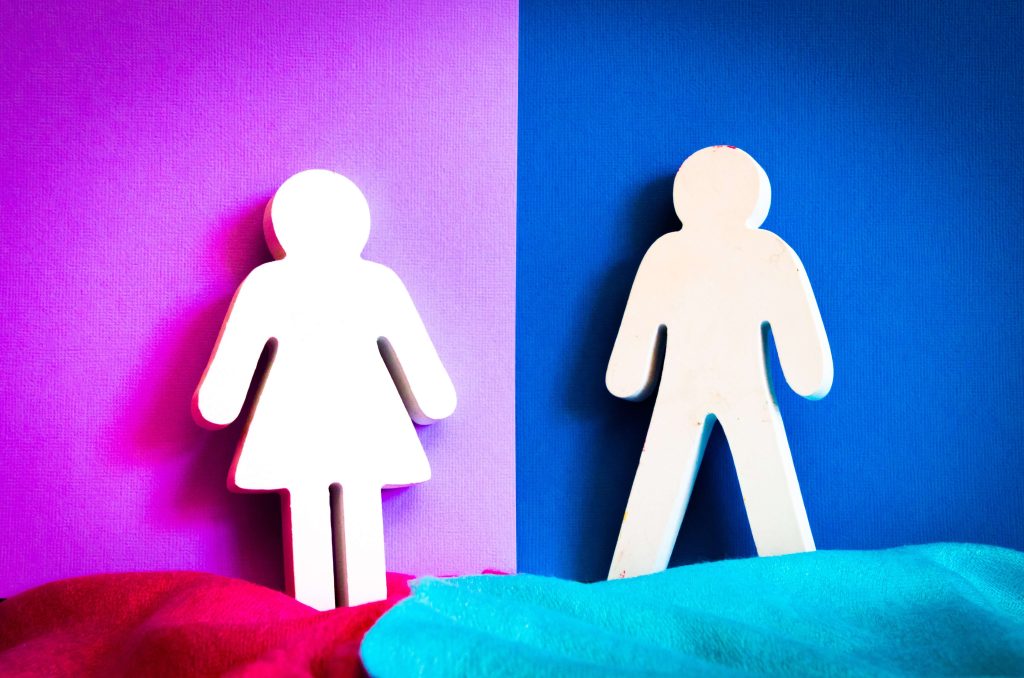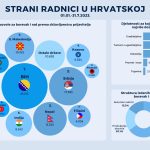The two panels discussed the effect of the COVID-19 pandemic on the progress achieved in the fight for gender equality and women’s preparedness for a prompt response in crisis management.
The head of the office, Violeta Simeonova Staničić, recalled that in January the European Parliament passed a resolution on gender prospects during and after the pandemic crisis.
The resolution identifies the pandemic’s many negative affects on equality, from the rise in domestic violence to unpaid work and layoffs, she said, adding that the resolution contains recommendations to overcome those effects.
Dr. Marina Lampalo of the KBC Zagreb hospital said that although 67% of doctors in Croatia were women, they were not equal in management.
Dr. Vlasta Merc of Zagreb’s Dubrava hospital remarked that “we have three men and only one woman” in the national COVID-19 response team.
MEP Željana Zovko (HDZ, EPP) said that at the start of her term, European Commission President Ursula von der Leyen insisted on strictly respecting the women’s quota but that when it came to management, “the equality target hasn’t been achieved yet.”
“We are fighting with every means available for women not to be just a service in the future, but absolutely represented in decision making on essential matters,” she said, adding that it was essential “that women are protected from violence also in their homes.”
The chair of the Croatian parliament’s Gender Equality Committee, Marija Selak Raspudić, said women made up 30% of Croatian MPs and that one could not talk about a pay glass ceiling. But, she added, there is a lack of balance within the caucuses, notably in bigger parties, where men are given precedence in addressing the public.
She said men were more exposed to coronavirus because “it’s not manly to take care of one’s health, which has now landed in women’s lap.”
MEP Biljana Borzan (SDP, S&D), elected woman MEP of the year in women’s rights in 2018, said she was for women’s quotas but only for a time, until awareness was raised that women could hold key positions.
Speaking of a directive on women in management boards, she said, “It’s been buried in the Council for years. We in the Parliament approved it, the Commission gave the green light, but there is resistance for adopting the directive at European Union level because some member states are against it.”
Zagreb Stock Exchange president Ivana Gažić mentioned a European regulation on the women’s share in the financial industry adopted after the 2008 crisis. “If financial institutions’ management boards are balanced, they act much more cautiously and rationally.”
Grozdana Perić, chair of the Croatian parliament’s Finance and State Budget Committee, said that as a member of the Croatian National Bank Council she saw that more and more banks included women in management. “The financial crisis showed that men are bigger gamblers, while women want a certain stability and order.”
Medeja Lončar, CEO at Siemens Croatia, said surveys showed that since the pandemic the gender equality index had deteriorated.
“It will take 50 years longer because of this crisis to balance relations. We must be more active. The responsibility is on us women, but men should be included too because if we don’t talk, we’ll never make a step further,” she said.
For more news about Covid-19, follow TCN’s dedicated page.








